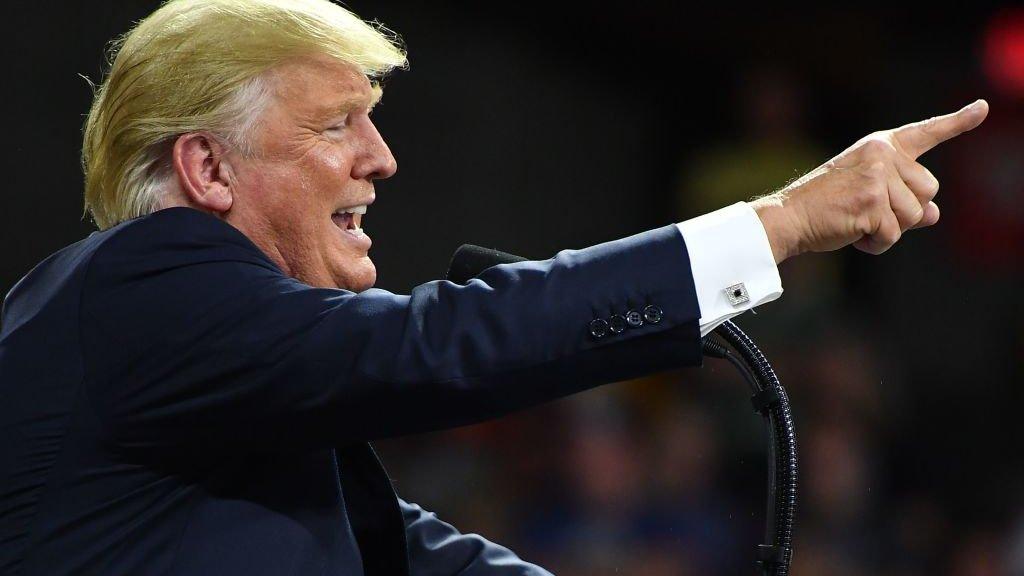US wage growth hits nine-year high
- Published
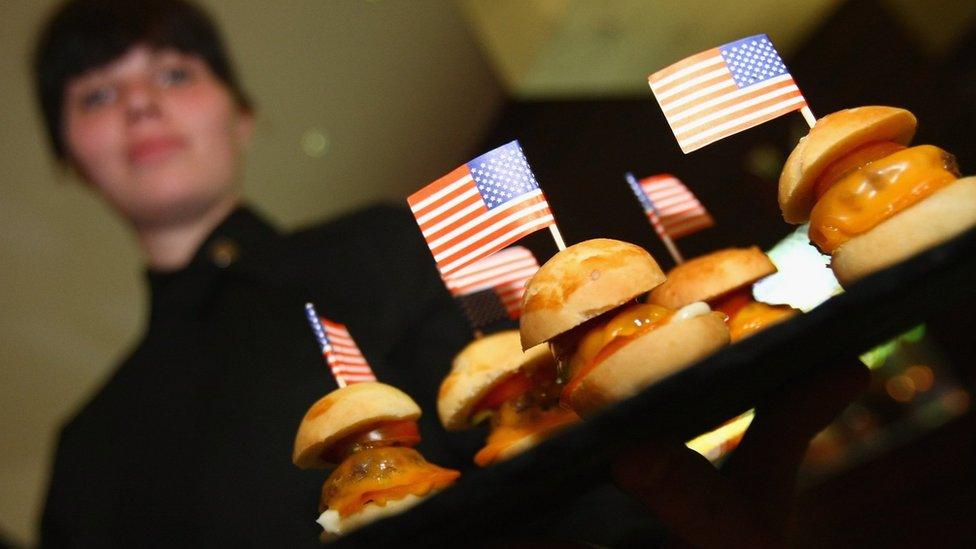
Wages in the US grew at their fastest pace for nine years last month, the latest official figures show.
The US Labor Department, external said wages grew at an annual rate of 3.1% in October, accelerating from a rate of 2.8% the month before.
The economy also added 250,000 jobs last month, beating expectations, while the jobless rate remained at 3.7%.
The report quickly became fodder for political debate ahead of next week's high stakes congressional election.
President Donald Trump celebrated the figures on Twitter as "incredible" and urged his followers to "Vote Republican".
In an unusual move, the White House also organised a briefing call for reporters to promote the gains.
Allow X content?
This article contains content provided by X. We ask for your permission before anything is loaded, as they may be using cookies and other technologies. You may want to read X’s cookie policy, external and privacy policy, external before accepting. To view this content choose ‘accept and continue’.
The top Senate Democrat, Chuck Schumer of New York, issued a statement of his own, aiming to redirect voter attention.
The latest numbers "may look good" but should be considered alongside other economic policies, he said.
"When the average family sees their health care costs go up because of Republican actions, these numbers will mean little," he said.
'Landmark' report
Among economists, there was wider agreement that the jobs report pointed to strength in the US economy, despite recent worries that weakness may be emerging in some sectors such as housing and trade.
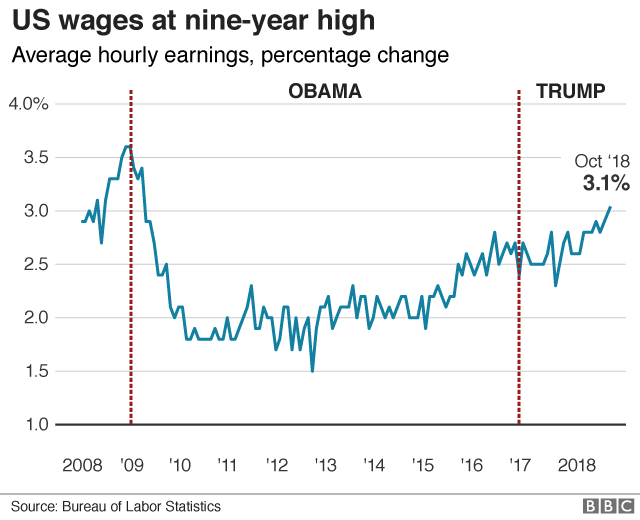
They said a rise in the number of people entering the workforce indicated confidence in the labour market, while wage gains suggested the robust hiring climate is starting to benefit the average worker.
Average hourly earnings for all private workers hit $27.30 in October, up 83 cents from a year earlier. That marked the strongest annual rise since April 2009.
"Today's jobs report is a landmark in the long recovery since the Great Recession, showing the power of a tight labour market to raise pay for American workers if allowed to run hot for a sufficiently long time," said Andrew Chamberlain, chief economist at the job website Glassdoor.com.
On average, the US economy has added 218,000 jobs a month over the last three months - well above the rate needed to keep up with population growth.
The gains in October occurred in most industries, with the healthcare sector adding 36,000 jobs, manufacturing 32,000 and construction 30,000.
Employment in the leisure and hospitality sector rose by 42,000 last month. That followed no change in September, which the Labor Department said was probably due to the impact of Hurricane Florence.
Rate rise
Economists said the figures all but guarantee another US interest rate rise before the end of the year.
Ian Shepherdson, chief economist at Pantheon Macroeconomics, said: "In short, the labour market continues to tighten. Nothing in this report will make the Fed think that skipping the December [interest rate] hike is a good idea."
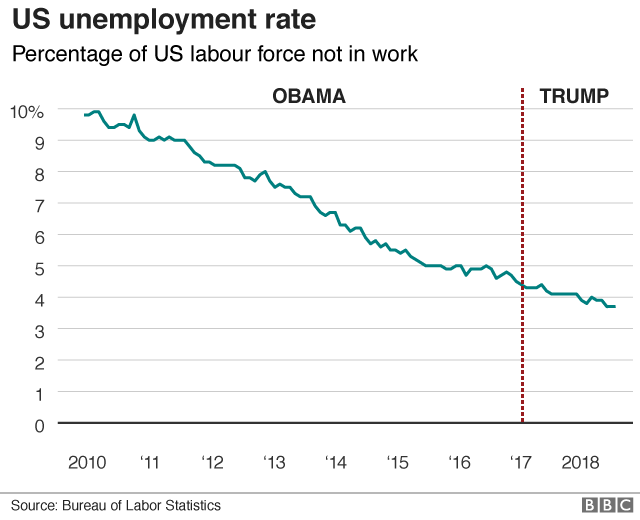
The Federal Reserve last raised interest rates in September, bringing the target for the bank's benchmark rate to a range of 2%-2.25%.
The move was the bank's eighth rate rise since 2015, continuing its policy of gradual increases.
The Fed has said the US economy is strong enough to absorb the rises, which are intended to head off uncontrolled inflation.
However, Mr Trump has criticised the Fed's actions, blaming them for recent turbulence in the stock market.
When asked last month by the Wall Street Journal about what he saw as the biggest risks to the US economy, Mr Trump said: "To me the Fed is the biggest risk, because I think interest rates are being raised too quickly."
- Published26 October 2018
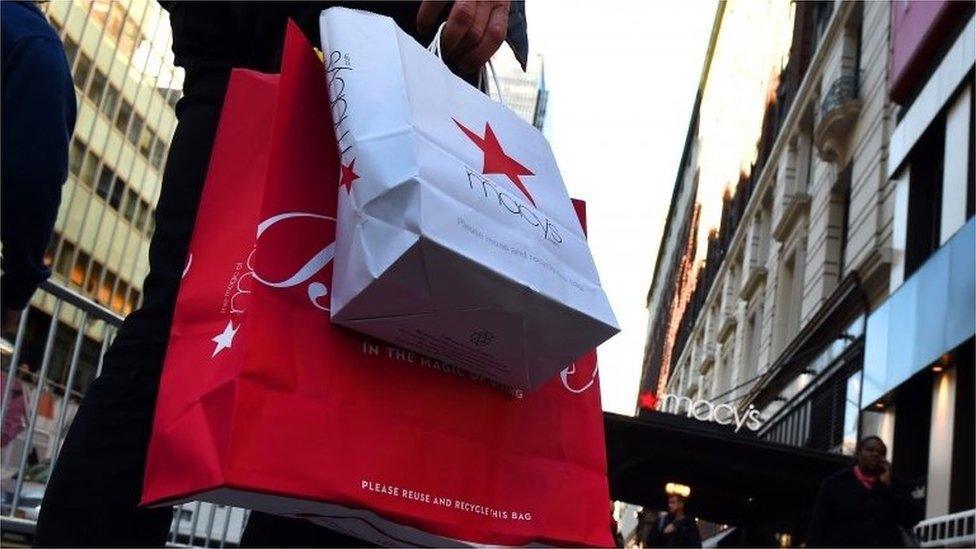
- Published24 October 2018
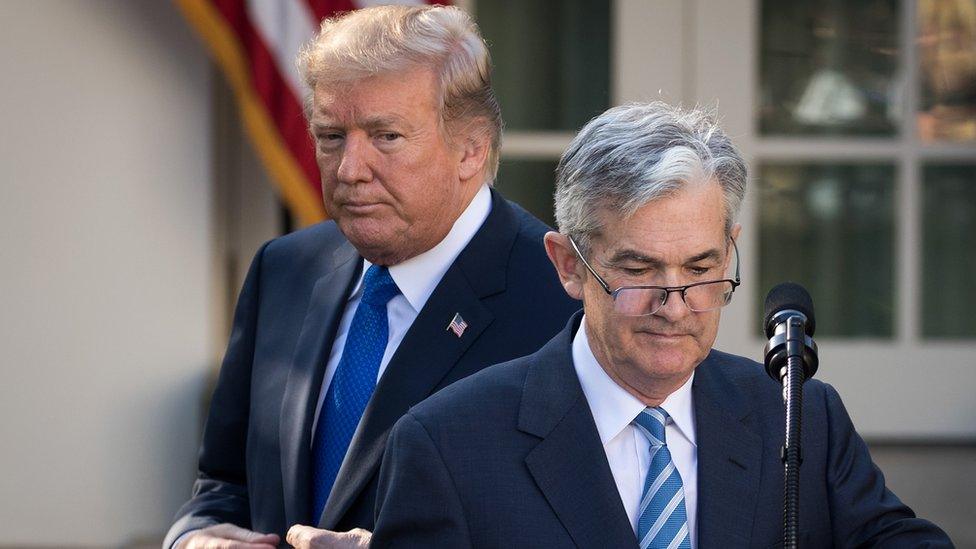
- Published3 November 2020
